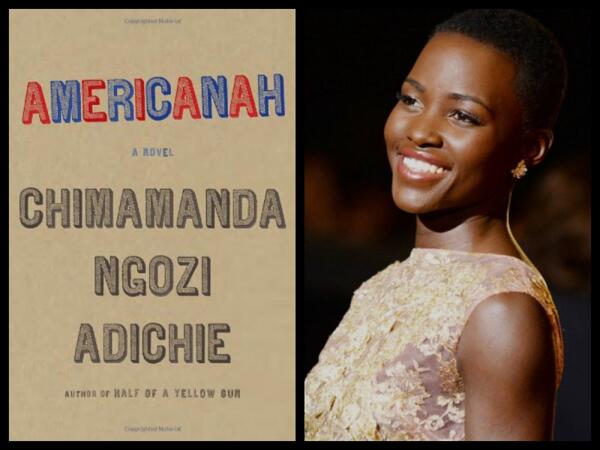
“One Book, One New York” is the largest community reading program in the country, bringing together book-loving New Yorkers to read the same book at the same time. The program was launched in February 2017 with quintessential New York flair, featuring five celebrities who each urged New Yorkers to vote for one of five award-winning books: Ta-Nehisi Coates’s “Between the World and Me,” Paul Beatty’s “The Sellout,” Chimamanda Ngozi Adichie’s “Americanah,” Betty Smith’s “A Tree Grows in Brooklyn” and Junot Díaz’s “The Brief Wondrous Life of Oscar Wao.”
Ultimately, the votes were tallied and Chimamanda Ngozi Adichie’s “Americanah” was selected as the book all New Yorkers will read together.
During the coming months, the Mayor’s Office of Media and Entertainment will present a series of free events throughout the five boroughs, with a culminating “One Book, One New York” event in early June.
New Yorkers are encouraged to form their own book clubs and community events as part of “One Book, One New York.” Penguin Random House has provided a discussion guide to enhance conversation around “Americanah,” and to highlight key themes and passages throughout the book. Access it here.
One obvious question we have here is whether this news of a whole city participating in this reading program, reading this one book, “Americanah,” will be of some positive influence on the film adaptation of the award-winning novel that Lupita Nyong’o is attached to star in; a project that was first announced 3 years ago, when Nyong’o optioned the novel, reuniting with Brad Pitt’s Plan B Entertainment company to bring the project to life.
It’s too early to say; there haven’t been any updates on the adaptation since it was first announced in 2014 – at least, nothing that was made public; notably who will write and direct the film.
I think it goes without saying that the film adaptation of Adichie’s “Americanah,” should be directed by a woman, but more specifically a black woman.
The novel follows a Nigerian woman, Ifemulu, as she navigates new American terrain while her lover Obinze experiences life as an undocumented immigrant in London. A transcontinental love story, the book explores nuances of black female sexuality, identity, and relationships through the lens of a brazen, intelligent black female character.
The possibility of an emerging director becoming attached to this project excites me. There are many examples of emerging directors brought on to larger projects and establishing their careers- Think Cary Fukunaga’s remake of “Jane Eyre,” or Ryan Coogler’s “Fruitvale Station.” The crop of talented emerging African female directors include the likes of Nikyatu Jusu, Frances Bodomo, and Chika Anadu, whose recent feature film “B For Boy” strikes some of the same cultural chords as “Americanah.” I have no doubt that any one of them would bring a distinct directorial perspective to the material, as evidenced in their respective bodies of work in the short form.
But with the star power and prestige now behind the project, a more established director might be the sole option for the film’s producers. Ava DuVernay is a definite shoo-in for the project, demonstrating a continual engagement with the inner lives of black women in both “I Will Follow” and “Middle of Nowhere.” Also “Selma” was produced in part by Brad Pitt’s Plan B, which might put her at an advantage for being considered for this project.
Further, after the international success of “Belle,” Amma Asante also seems another strong possibility. The UK-born, Ghanaian director has increased her filmmaking profile significantly since the release of the film and was offered a larger, studio film after “Belle” which was to star Kerry Washington, but both eventually left the project; and Asante is currently in production on “Where Hands Touch,” a period romance starring Amandla Stenberg, as the release for “A United Kingdom” (her most recent film which stars David Oyelowo and Rosamund Pike) continue to travel.
Widening the scope, Nigerian director Andrew Dosunmu, who explored contemporary Nigerian life in America in both “Restless City” and “Mother of George,” could also take on the project.
But, what if the director isn’t black, or a woman? Will this taint the possibilities for the film? Will the significance of scenes in an African braid-shop be lost? Will the subtleties and commentary about tensions between African immigrants and African Americans come across? One of my favorite sequences in the book takes a place when Ifemelu doesn’t attend a protest that her African American boyfriend Blaine organizes, causing a large cultural rift between them. It’s funny, but also telling, of intercultural division between these communities. How can one truly direct this scene if they know nothing about these types of tensions, or don’t care to know more than what the book offers? There’s a certain cultural currency that goes beyond being interested, or chosen to adapt certain material. We often hear people say: “The book was so much better than the film,” and I’d hate to see that to happen to this adaptation. There are so many ways to channel its literary strengths into a powerful film. Bringing on the right director is the first step.
But even before that happens, let’s wait and see whether this “One Book, One New York” initiative leads to any new motivation to get the film adaptation into production.
Nijla Mu’min is a writer and filmmaker from the East Bay Area. She’s written for The Los Angeles Times, Vice, and Bitch Media.

